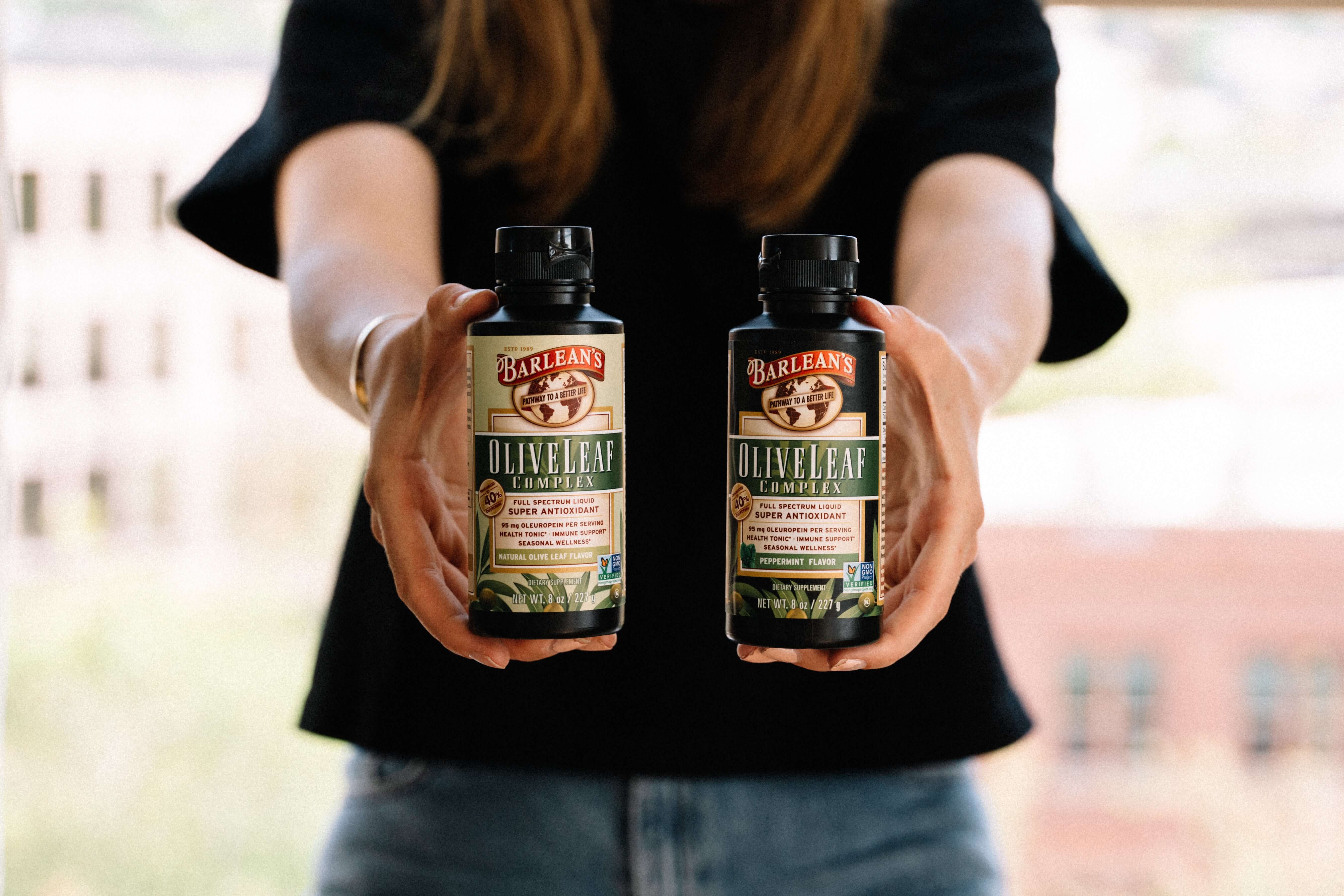By Jonny Bowden, PhD, CNS
Barlean’s Scientific Advisory Board
For the first fifteen years of my career as a nutritionist and health professional, almost no one talked about immunity.
Back then, it was all about calories, weight loss and working out. Almost no one talked about “wellness”. The immune system was something we learned about in high school biology and just assumed worked the way it was supposed to work. In fact, the first time I became aware of immunity as a “thing” was in the 1980’s when a mysterious disease called Acquired Immunodeficiency Syndrome started showing up.
Now, in 2023, most of us are aware of the immune system and understand the importance of having one that is balanced. I’ve probably been asked about it more than any other subject in the last few years, the most common question being “How can I boost my immune system?” (The answer is that you don’t want to boost it. More on that in a moment.)
Is Aging Just the Deterioration of the Immune System?
We now know that the immune system is one of the most important and complex networks of organs, cells and proteins in the human body. Current theories of aging implicate something called immunosenescence,(1) which basically means the aging (senescence) of the immune system cells, leading to the breakdown and dysfunction of the entire system.
As we age, our body’s ability to fight off invading microbes is compromised. When the immune system is no longer able to function properly, you’re left open to infections from all kinds of nasty invaders, which if your immune system were functioning optimally, you would easily be able to defeat.
This brings us to olive leaf complex, one of the best fortifiers and supporters of healthy immunity that I know of.
“Boosting Immunity”? No thanks.
Notice that I didn’t say “olive leaf complex boosts your immune system”. That’s because “boosting” your immune system is the last thing you’d want to do. Let me explain.
Your immune system is like a silent, well-trained army of cells (T-cells, B-cells) with specific functions that get activated whenever a foreign invader is sensed. Any army wants its soldiers well-trained, fit, alert, and ready and able to respond appropriately. It does not want its soldiers jacked up on stimulants (“boosted”).
A “boosted” (over-functioning) immune system is far more likely to resemble over-caffeinated troops that get excited and start shooting at everything. When an immune system is “boosted” you wind up with auto-immune disease—the system attacks your own body instead of just dangerous intruders, because it’s too jacked up to be able to tell the difference. You want to strengthen and support your immune system—not boost it.
So, What’s The Deal With Olive Leaf Complex?
Most of us know of the awesome benefits of olive oil through an extensive amount of heavily publicized research on the Mediterranean Diet(2), in which olive oil is heavily featured. Well, the same olive tree from which the oil comes also produces a lot of leaves. And many researchers now believe that the substances in those leaves are as important—maybe even more important—than the oil itself.
Researchers writing in the respected peer-reviewed journal Nutrition Reviews wrote the following in a paper on the health benefits of olive leaves:
“Olive tree (Olea europaea L.) leaves have been widely used in traditional remedies in European and Mediterranean countries such as Greece, Spain, Italy, France, Turkey, Israel, Morocco, and Tunisia. They have been used in the human diet as an extract, an herbal tea, and a powder, and they contain many potentially bioactive compounds that may have antioxidant, antihypertensive, antiatherogenic, anti-inflammatory, hypoglycemic, and hypocholesterolemic properties. (3)
Most of these extraordinary benefits come from chemicals in plants known as polyphenols(4,5). Polyphenols are a group of plant compounds found primarily in berries, walnuts, tea, grapes and other fruits and vegetables.
The most widely studied polyphenol in olive leaves is oleuropein(6). Oleuropein and its derivatives help keep bodily inflammatory and blood circulatory activities in normal range. These polyphenols also have antimicrobial activity against viruses, yeasts, bacteria and fungi. Moreover, oleuropein’s derivative hydroxytyrosol (7) has been shown to have even stronger effects! That’s what makes Barlean’s Olive Leaf Complex so special and unique—you’re getting all the many components of the olive leaf exactly as they occur in nature.
Oleuropein certainly deserves its reputation as a superstar, but it alone is not the most powerful compound in olive leaves. This limited power is especially true when Oleuropein is extracted (as in olive leaf extract) and separated from its natural environment where it shares space with at least 30 different other polyphenols in olive leaf. That’s why you always want to supplement with olive leaf complex as opposed to olive leaf extract. A complex is the equivalent of “full spectrum” while an extract is the equivalent of a chemically-extracted single compound.
For the past twenty years, I can honestly say that I have always had a fresh bottle of Barlean’s Olive Leaf Complex in my cabinet. I use it at the first sign of a cold, whenever something is “going around” or whenever I feel I’m a little under the weather and can use a little boost. I consider it an essential part of any supplement regimen designed to offer support and encouragement to our “troops”, the cells of our very own immune system.
Remember, the cells of our immune system are our own “first responders”. We want to nourish and support them and one way to do it is with a daily dose of Olive Leaf Complex.
REFERENCES
- https://www.sciencedirect.com/topics/medicine-and-dentistry/immunosenescence
- https://www.hsph.harvard.edu/nutritionsource/healthy-weight/diet-reviews/mediterranean-diet/#:~:text=Research%20has%20consistently%20shown%20that,the%20course%20of%2012%20years.
- https://academic.oup.com/nutritionreviews/article/67/11/632/1851027
- https://pubmed.ncbi.nlm.nih.gov/35694805/
- https://www.ncbi.nlm.nih.gov/pmc/articles/PMC2835915/
- https://www.ncbi.nlm.nih.gov/pmc/articles/PMC3002804/
- https://www.ncbi.nlm.nih.gov/pmc/articles/PMC5874578/#:~:text=Due%20to%20its%20molecular%20structure,products%20to%20replace%20synthetics%20additives.


Share:
Algae Oil: The Plant-based Solution to the Problem of EPA and DHA
The Gift of Health: 5 Reasons Why Health Supplements Make Perfect Christmas Presents